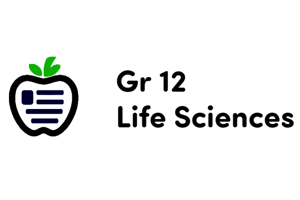Podcast
Questions and Answers
Which statement best describes the nature of hormones?
Which statement best describes the nature of hormones?
- Hormones do not require specific receptors for action.
- Hormones are exclusively hydrophilic.
- Hormones can only be produced by the adrenal glands.
- Hormones can be either hydrophilic or lipophilic. (correct)
What mechanism primarily regulates hormone production?
What mechanism primarily regulates hormone production?
- Random fluctuations in production.
- Negative feedback mechanisms. (correct)
- Emotional feedback loops.
- Positive reinforcement mechanisms.
Which endocrine gland is NOT involved in hormone production and regulation?
Which endocrine gland is NOT involved in hormone production and regulation?
- Pituitary gland.
- Cerebellum. (correct)
- Pancreas.
- Thyroid gland.
How do hormone receptors function with respect to hormone action?
How do hormone receptors function with respect to hormone action?
What can result from hormonal imbalances?
What can result from hormonal imbalances?
What is the primary role of auxins in plants?
What is the primary role of auxins in plants?
Which of the following best describes gibberellins?
Which of the following best describes gibberellins?
What role do cytokinins primarily play in plants?
What role do cytokinins primarily play in plants?
Which type of hormone is primarily responsible for fruit ripening in plants?
Which type of hormone is primarily responsible for fruit ripening in plants?
What characterizes steroid hormones in animals?
What characterizes steroid hormones in animals?
Flashcards
Plant Hormones
Plant Hormones
Signaling molecules in plants that control growth, development, and responses to stress.
Auxins
Auxins
Plant hormones promoting cell elongation, apical dominance, and tropisms (like phototropism).
Gibberellins
Gibberellins
Plant hormones stimulating stem elongation, flowering, and fruit development, and seed germination.
Cytokinins
Cytokinins
Signup and view all the flashcards
Abscisic Acid (ABA)
Abscisic Acid (ABA)
Signup and view all the flashcards
Ethylene
Ethylene
Signup and view all the flashcards
Animal Hormones
Animal Hormones
Signup and view all the flashcards
Steroid Hormones
Steroid Hormones
Signup and view all the flashcards
Peptide Hormones
Peptide Hormones
Signup and view all the flashcards
Amine Hormones
Amine Hormones
Signup and view all the flashcards
Hormone Types
Hormone Types
Signup and view all the flashcards
Hormone Regulation
Hormone Regulation
Signup and view all the flashcards
Endocrine Glands
Endocrine Glands
Signup and view all the flashcards
Hormone Receptors
Hormone Receptors
Signup and view all the flashcards
Hormone Action
Hormone Action
Signup and view all the flashcards
Hormone Interactions
Hormone Interactions
Signup and view all the flashcards
Hormonal Imbalances
Hormonal Imbalances
Signup and view all the flashcards
Study Notes
Plant Hormones
- Plant hormones, also known as phytohormones, are signaling molecules produced within plants, controlling various physiological processes.
- They are produced in very small amounts but have profound effects on growth, development, and responses to environmental stresses.
- Several major classes of plant hormones exist, each with diverse roles:
- Auxins: Promote cell elongation, involved in apical dominance, phototropism, and gravitropism. They are often produced in the shoot tips and transported downwards.
- Gibberellins: Stimulate stem elongation, flowering, and fruit development. They also play a crucial role in mobilization of food reserves during seed germination.
- Cytokinins: Promote cell division and differentiation, delay senescence (aging) in leaves and flowers, and are involved in apical dominance regulation. They are often produced in roots and transported upwards.
- Abscisic acid (ABA): Inhibits growth, regulates stomatal closure during water stress, and promotes seed dormancy. It's also involved in responses to various environmental stresses.
- Ethylene: Promotes fruit ripening, leaf abscission (falling), and senescence. It also plays a role in stress responses.
- Plant hormones often interact in complex ways, modulating each other's effects. For instance, auxins and cytokinins are often antagonistic, influencing the balance between cell division and elongation.
- Environmental factors significantly affect hormone production and actions, influencing plant growth and development in response to light, temperature, water availability, and nutrient levels.
Animal Hormones
- Animal hormones are chemical messengers produced by endocrine glands, traveling through the bloodstream to target tissues to produce specific responses.
- These hormones regulate a vast array of functions including metabolism, growth, reproduction, and homeostasis.
- The major classes of animal hormones include:
- Steroid hormones: Derived from cholesterol, typically hydrophobic and can cross cell membranes. Examples include cortisol, estrogen, progesterone, and testosterone. They affect gene expression in target cells.
- Peptide hormones: Short chains of amino acids, typically hydrophilic and cannot cross cell membranes. They bind to receptors on cell surfaces, triggering intracellular signaling cascades. Examples are insulin, glucagon, and growth hormone.
- Amine hormones: Derived from amino acids like tyrosine. They can be either hydrophilic or lipophilic, depending on the specific hormone. Examples include epinephrine (adrenaline), norepinephrine, and thyroid hormones.
- Hormone production is highly regulated, usually by negative feedback mechanisms. When a hormone's level rises, it triggers a response that reduces further production, ensuring homeostasis.
- Endocrine glands like the pituitary, thyroid, adrenal, and gonads are crucial for hormone production and regulation.
- Hormone receptors on target cells are highly specific, ensuring that only certain cells respond to particular hormones. Specific receptors determine the targets for hormone action.
- Hormones are involved in complex interactions throughout the body, mediating communication between different organs and systems.
- The actions of some hormones can be affected by other hormones in a synergistic or antagonistic manner; multiple hormones may work together for a full developmental response.
- Hormonal imbalances can lead to various disorders, from metabolic problems to reproductive issues, highlighting the importance of precise hormonal regulation in animals.
Studying That Suits You
Use AI to generate personalized quizzes and flashcards to suit your learning preferences.




